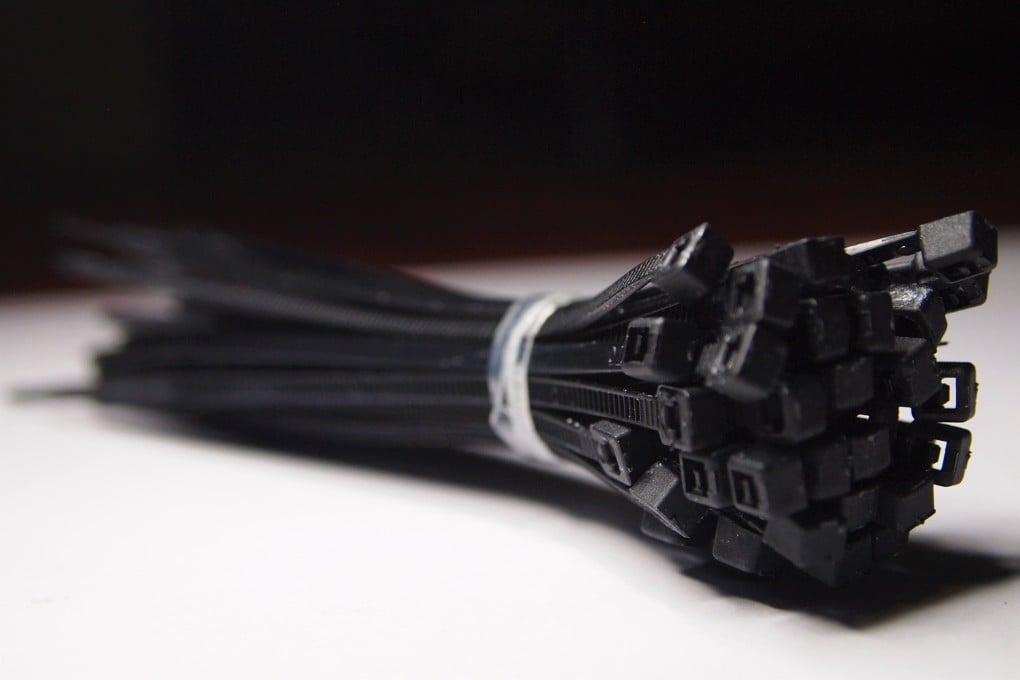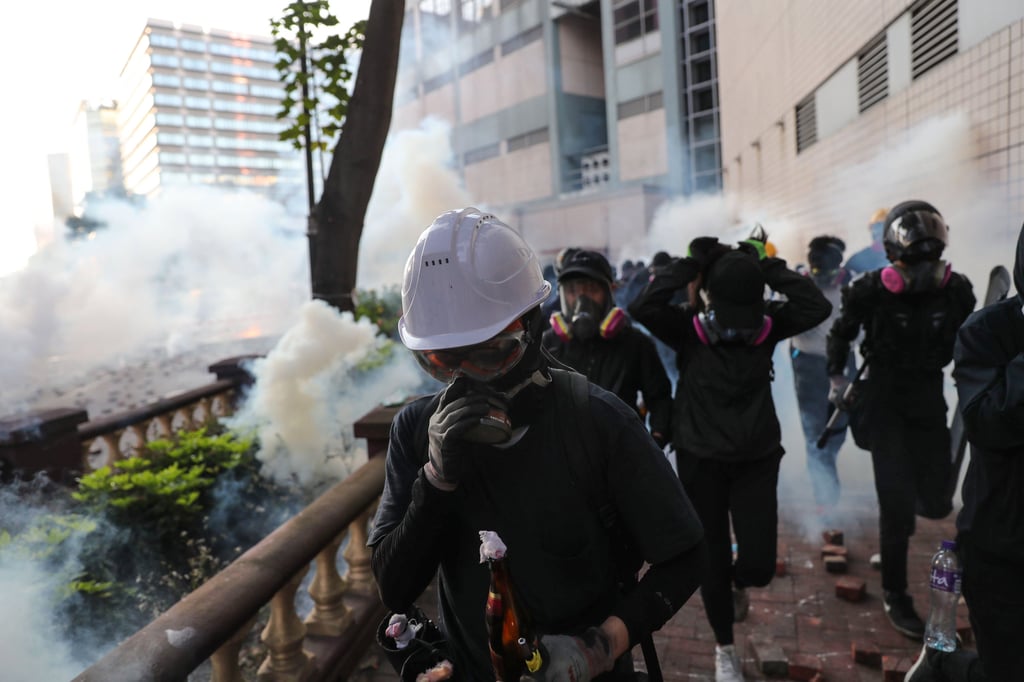Hong Kong protests: prosecutors press more serious charges against suspects for carrying zip ties to 2019 clashes
- Cheng Ho-lun and Fung Tin-ching accused of rioting and illegally keeping a total of four packs of plastic ties in Yau Ma Tei on November 18, 2019
- Despite top court’s recent ruling on zip ties, prosecutors cite more serious offence of possessing articles with intent to destroy or damage property

Hong Kong prosecutors have pressed more serious charges against two riot suspects for carrying plastic zip ties to clashes during the 2019 social unrest, after the city’s top court held that a lighter offence previously invoked to punish the possession of the item in protests could no longer be used in future cases.
The Court of Final Appeal last Friday acquitted the first person jailed for keeping zip ties during the unrest, after ruling that the charge of possessing instruments fit for unlawful purposes was inapplicable in cases involving the plastic fasteners which were widely used by both protesters and police.
But the landmark ruling may have little impact on the outcome of the trial of teacher Cheng Ho-lun, 27, and automotive technician Fung Tin-ching, 24, who stood accused before a deputy district judge at West Kowloon Court on Thursday of rioting and illegally keeping a total of four packs of plastic ties in Yau Ma Tei on November 18, 2019.

The pair were among 11 men accused of rioting that night in the vicinity of Polytechnic University, the site of intense confrontations where protesters built their stronghold and resisted enforcement actions.
Apart from the riot charge, Cheng and Fung had each faced an additional count of possessing instruments fit for unlawful purposes over the zip ties.
Instead of dropping the charge in light of the top court’s ruling, prosecutors cited the more serious offence of possessing articles with intent to destroy or damage property, as they looked to hold the pair responsible for bringing the ties to the protest.
While possessing instruments fit for unlawful purposes is punishable by up to two years in jail under the Summary Offences Ordinance, the new charge carries a maximum jail sentence of 10 years under the Crimes Ordinance.